Listening To Antarctica: A Guided Tour With Dr Jen
Three weeks of travelling around the Antarctic Peninsula has given Dr Jen (from Breakfasters and Einstein A Go-Go) a new perspective on the state of the planet. Take a moment to experience this incredible continent – and Jen’s spectacular photos, too.
WORDS AND PHOTOS DR JEN MARTIN
The ice in my hand is crackling; it’s sputtering and popping. I’m one of ten people sitting in a small inflatable boat, in the cold waters of the Antarctic Peninsula. We’ve agreed to make it a ‘silent cruise’ so we can be more immersed in the landscape around us. But it’s not silent at all.
Antarctica contains ninety percent of the earth’s ice. If it all melted, the global sea level would rise by more than 60 metres. I expected to see icebergs, and they are more beautiful than I could have anticipated. So many sizes, shapes and hues of blue and white. What I did not expect was the fragments of ice all over the water surface: when I pick one up and hold it to my ear, there is a whole new world of sound.
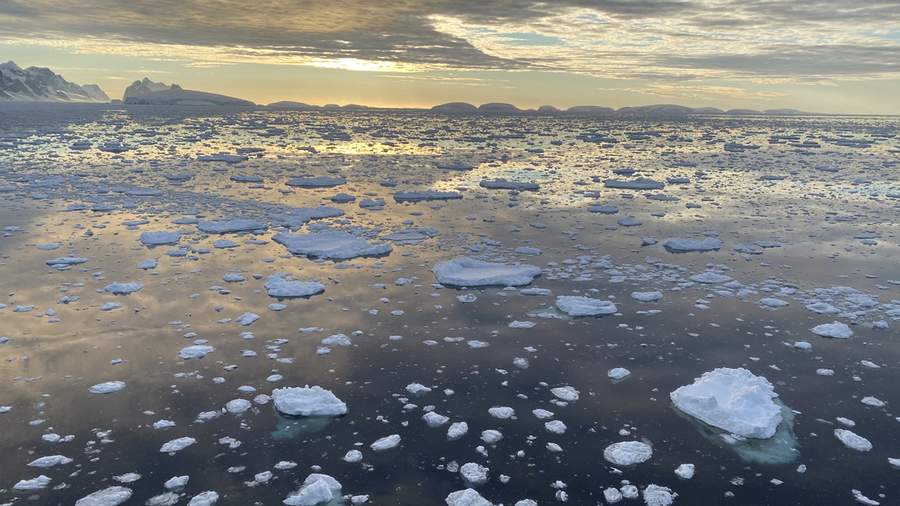
Photo by Jen Martin
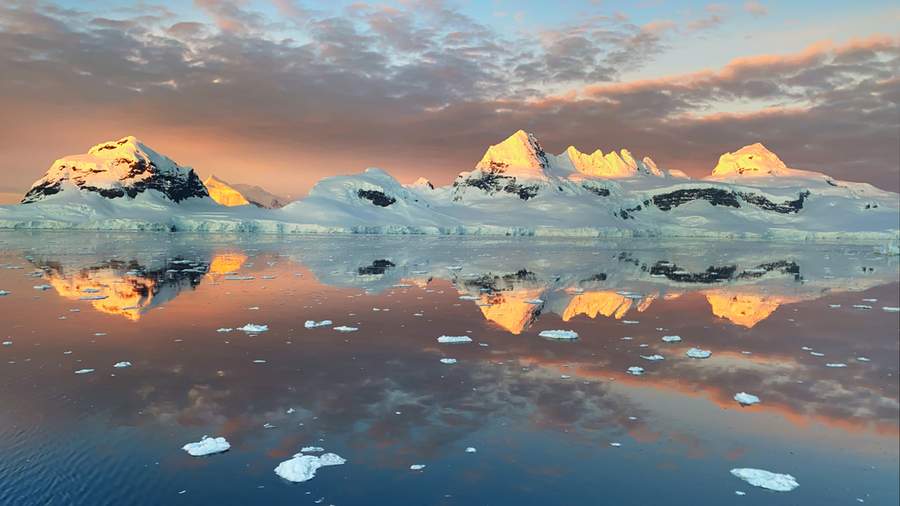
Photo by Jen Martin
As a child, I could hear the ocean in a seashell. What I am listening to now is the release of bubbles of air from the ice as it melts. The bubbles are in fact atmospheric time capsules, preserving tiny samples of air from ages past. Depending on the age of the fragment of ice in my hand, the air could be hundreds or even hundreds of thousands of years old. Last year, scientists extracted an ice core containing air-bubbles 1.5 million years old.
The sound of this reunion is somehow heartbreaking: these tiny bubbles speak of a time before we polluted our atmosphere with excessive greenhouse gases. Each crackle signifies a moment of ancient air being reunited with the earth’s atmosphere. Oh, how different that atmosphere now is.
* * *
Silence now, extraordinary silence, unlike anything I’ve ever experienced before: deep, full and rich. I’m standing on the top deck of our ship. It’s 11 pm, and the sun has just disappeared behind the ice. A column of orange light that extends into the sky is also reflected by the water, only interrupted by small fragments of ice floating on the surface. I feel completely insignificant and more at peace than I can ever remember being.
Peace. Before I went to Antarctica, I knew almost nothing about the Antarctic Treaty. What I now know inspires, but also frustrates me. On December 1 1959, twelve signatory countries agreed to ban military, nuclear and mining activity on the Antarctic continent. Further, they established Antarctica as a natural reserve dedicated to science and to peace. There are now 54 parties to the Treaty.
What a privilege it is to be in Antarctica to celebrate the 60th anniversary of this unique example of international cooperation. And how astonishing that at the height of the Cold War, twelve nations, including the United States and the Soviet Union, managed to move beyond their differences and agree on a common cause. The Antarctic Treaty shows it’s possible: humans are capable of making decisions that transcend our egos, agendas and conflicts. We can prioritise the protection of nature above profit and recognise the immense value of scientific knowledge. Why my frustration, then? Because I’ve all but lost hope that our current leaders will ever make such far-sighted decisions.
* * *
Another sound: part of the ice cliff breaks off and crashes into the water below. At first it’s like distant rumbling thunder, but it keeps going and going, reverberating all around the bay. As I watch, the ice continues to crumble like icing sugar and soon a section of the glacier has collapsed and disappeared into the water.
I’ve known about the science of climate change for a while. I also know it’s normal for glaciers to calve, especially in summer. But at this moment, the reality of our changing climate is hitting me as never before. The facts are undeniable: our reliance on fossil fuels is heating our planet and we’ve never seen warming at this rate in all of geological time.
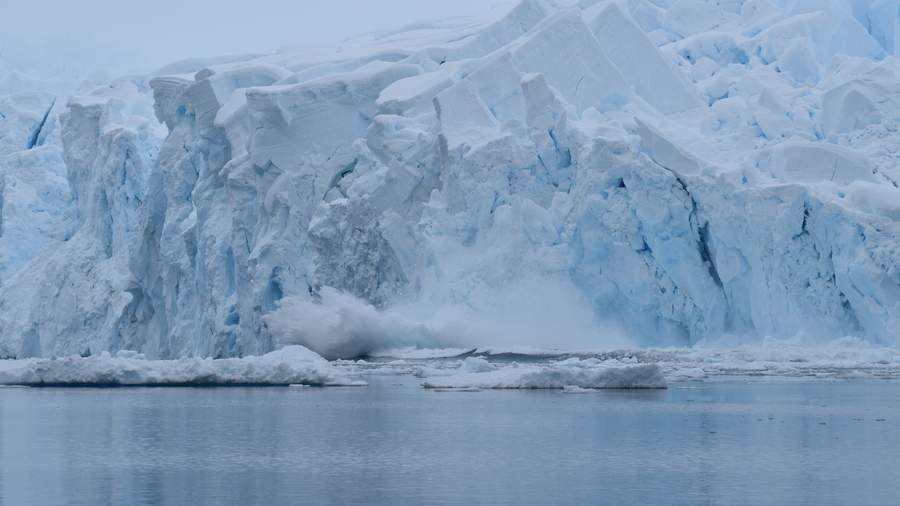
Photo by Jen Martin
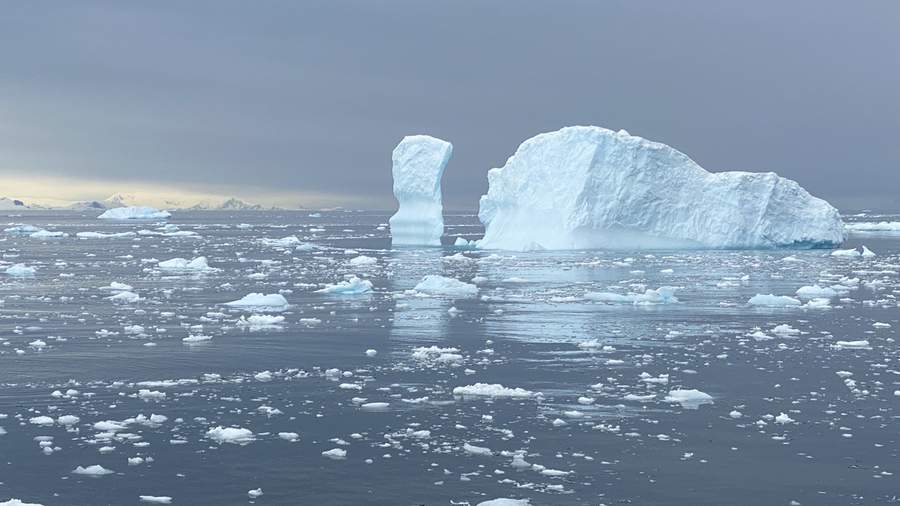
The Antarctic Peninsula is the second-fastest warming place on earth. Both surface and ocean temperatures are rising and among the many and varied consequences of this warming, the ice in front of me is going to melt. Melting polar ice will cause sea level rise. On Christmas Eve 2019, just two weeks after I left Antarctica, scientists estimate an extreme surface ice melt took place. It’s normal for up to 8 per cent of surface ice to melt on an Antarctic summer day. But melt levels have been above average every day since late November 2019, and on December 24, the researchers estimated that 16 per cent of the Antarctic surface ice melted on that day alone.
Antarctic weather systems drive our global climate. Suddenly the wave produced by the collapsed ice that I am watching roll towards me represents something much greater: a wave of unprecedented global change heading straight for all of us.
* * *
The sound of birds: oddly reminiscent of a braying donkey, as I sit on the ice watching a large colony of Gentoo penguins. Some of the penguins move with purpose along their highway paths through the snow, while others are still. But the honking and cawing are continuous.
Behind the colony is a majestic mountain range with small patches of black rock contrasting with the white ice. The contrast is mirrored in the birds: Gentoo penguins have white patches above their eyes, which look like headphones from a distance. They are even more charismatic and endearing than I’d imagined. I alternate between taking in the raucous colony as a whole and choosing just one penguin to watch. Does this male realise that in the time it has taken him to steal a pebble from another penguin’s nest, a thief has robbed his own nest?
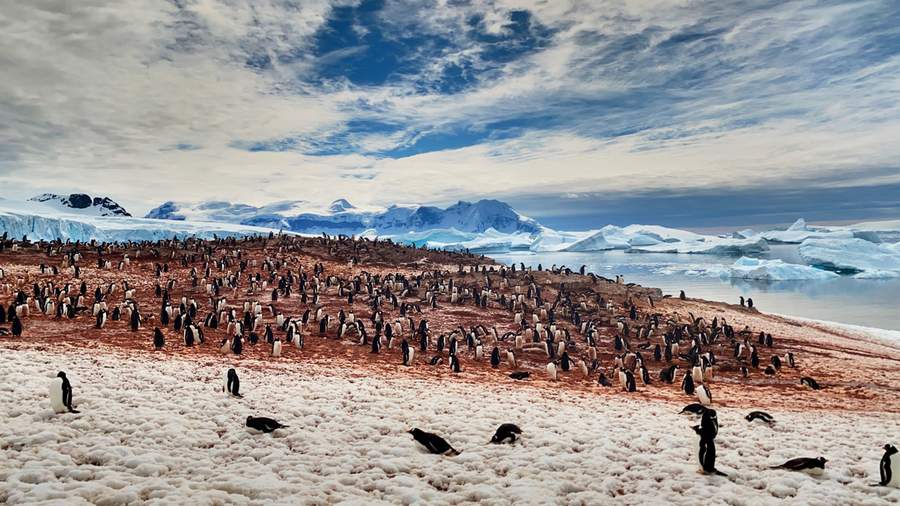
Photo by Jen Martin
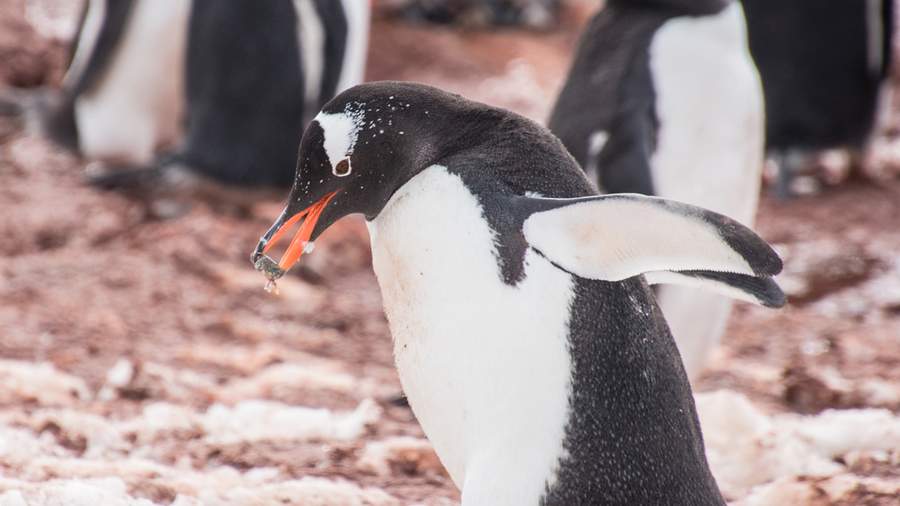
Photo by Jen Martin
Gentoo penguins are benefitting from climate change. Their populations are increasing as the water warms and the ice melts. We know the population on the Western Peninsula jumped from 25,000 to 173,000 between 1982 and 2017. Gentoos are flexible in what they eat and where they breed and, so far, they are successfully rolling with the climate change punches.
But the equally captivating Adélie penguins we see a few days later are losing as the Gentoos win. During the same 35-year period, Adélie numbers on the Peninsula dropped from 105,000 to 30,000. They feed mostly on krill, which concentrate around sea ice because of the algae and microbes that grow there. As the sea ice decreases on the Peninsula, so too does the penguins’ food source and the available resting places they can use during feeding trips. Of course, it doesn’t help that we catch 300,000 tonnes of krill each year because of the global demand for fish meal and omega-3 supplements. We’re kidding ourselves if we imagine Antarctica to be an ‘untouched wilderness’.
* * *
Alone on the top deck, my own weeping breaks the silence. I am overwhelmed by the beauty and the vastness, and by my fears about what is to become of Antarctica, and our planet as a whole, if we cannot embrace a new way of living. The experience of being in Antarctica has moved me beyond anything I could ever have anticipated. In my head I hear one of the most exquisite pieces of music I’ve ever sung, Ēriks Ešenvalds ‘Stars’: “And I know that I am honoured to be witness to so much majesty.”
But I have to face facts. Now I’m aware of the problems confronting Antarctica, I must acknowledge that I am a part of them. In the 2018/19 season, 56,168 tourists travelled to Antarctica. Right now, I am one of the 78,504 people predicted to visit Antarctica in the 2019/20 summer. The effects of tourism on Antarctica are substantial and growing.
From my mental turmoil emerges clarity: the only way I can begin to justify my brief, magical time in Antarctica is to fight for its protection, to become an active contributor to campaigns demanding climate action, and to give priority – every day – to the sustainability of my decisions. Starting at home, my family needs to make fundamental changes to our daily choices, beginning with what we eat, what we buy and how we travel. I’ve now seen Antarctica with my own eyes and I understand this is just the beginning of global change. For the first time I truly understand what we all stand to lose if we don’t commit to massively reducing the impacts we are having on our planet.
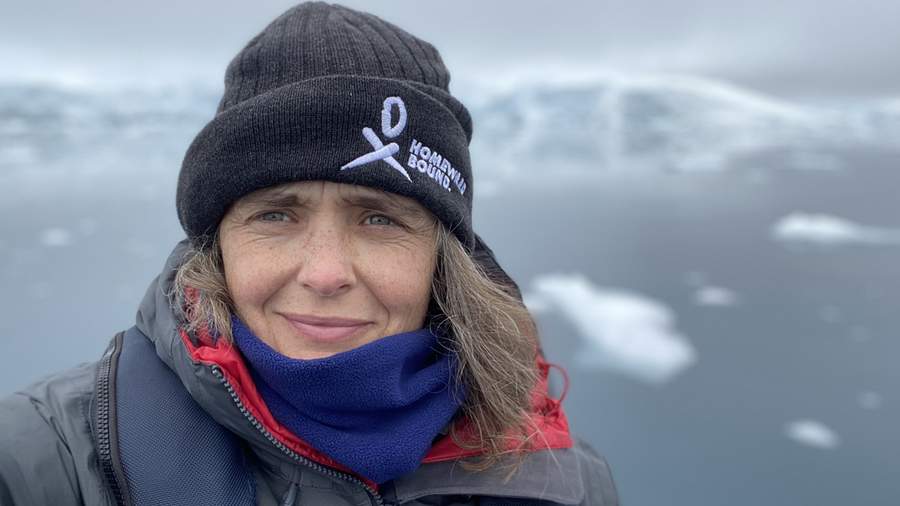
Photo by Jen Martin
Jen Martin is Dr Jen on Breakfasters and Einstein A Go-Go. She travelled to Antarctica as a member of the onboard teaching faculty for Homeward Bound, a global initiative focused on supporting women with a background in science, technology, engineering, mathematics and medicine (STEMM) to become more effective, visible, strategic, collaborative and legacy-minded leaders. This story first appeared in The Trip, Triple R's subscriber magazine.